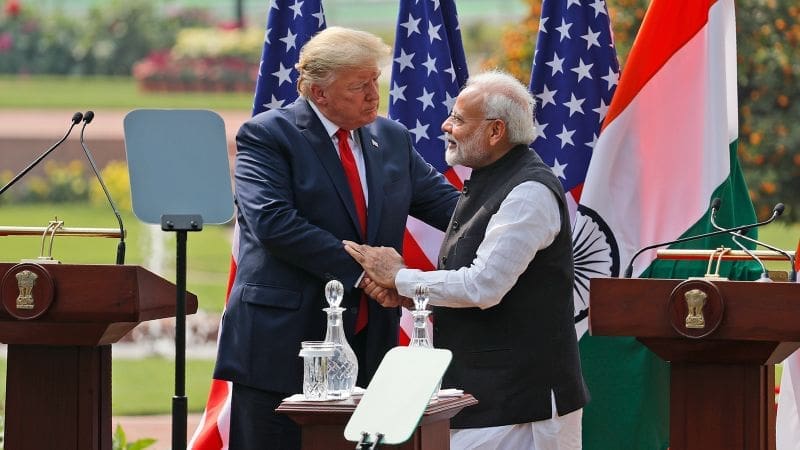Earlier this month, Trump pointedly addressed the BRICS countries, warning them of potential 100% tariffs should they consider forming a new currency or moving away from the US dollar. India, a founding member of BRICS, holds a significant role in this intergovernmental group which includes China and Russia. Despite being labeled a “very big abuser” of the bilateral trade relationship by Trump during a campaign speech, India maintains a strong personal rapport between Prime Minister Narendra Modi and Trump, which was well demonstrated when Trump visited Gujarat four years ago.
Indian foreign policy analysts believe this relationship will be crucial during Trump’s impending term. Harsh Pant from the Observer Research Foundation highlighted India’s unique position as a less “anti-American” member of BRICS, which might grant it leverage to oppose any collective move away from the dollar, an idea some BRICS nations support to decrease dependency on the US currency. Pant explains that Trump’s warnings against de-dollarization could offer India greater strategic maneuverability in BRICS negotiations.
Michael Kugelman of the Wilson Center’s South Asian Institute suggests that Trump’s return could allow for a closer India-U.S. relationship, especially compared to the Biden administration’s approach, particularly concerning issues such as Ukraine and human rights. He points out that neither Trump nor Modi has openly criticized Russia’s President Putin regarding the Ukraine invasion, and both have shown interest in peaceful resolutions.
However, India’s positive stance towards the US doesn’t fully shield it from the implications of Trump’s policies. The proposed universal tariff of 10% could impact India due to its trade surplus with the US. Despite the imbalance—where the US imports significantly more from India than it exports—analysts like Kugelman and Pant believe these challenges are manageable.
Kugelman notes that discussions might become more transactional, aligning with Trump’s deal-making persona. Trade negotiations could shift towards immediate gains rather than long-term policies. Pant recalls the 2018 waiver India received on the Chabahar Port dealings with Iran after US sanctions, emphasizing that transparent negotiations focusing on mutual benefits might help India navigate Trump’s strategic landscape again.
India’s balance between maintaining good relations with Trump and pursuing its independent interests was evident during past engagements. The future holds the potential for similar diplomatic maneuvers, provided India continues to adeptly handle these complex interactions.
India is likely to strategize carefully amid the evolving geopolitical and economic landscape shaped by Trump’s policies, retaining its advantageous position in global politics while safeguarding its national interests.
Source: CNN














